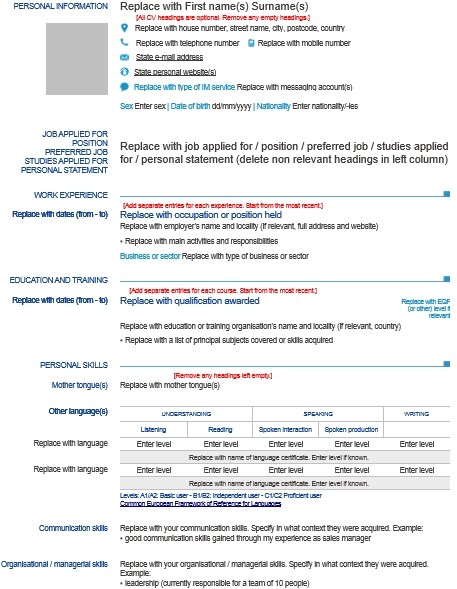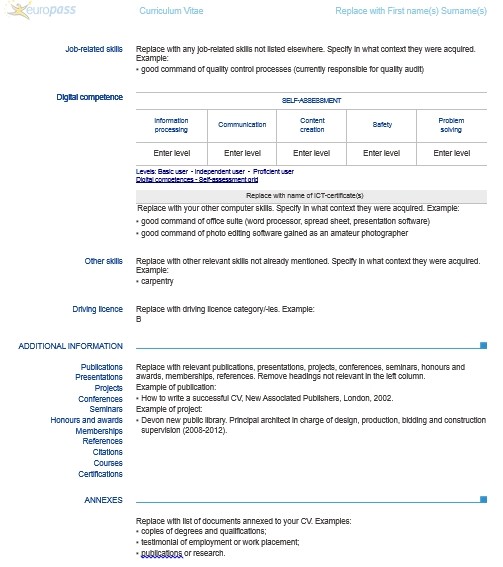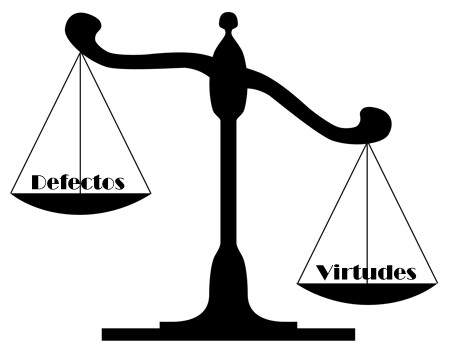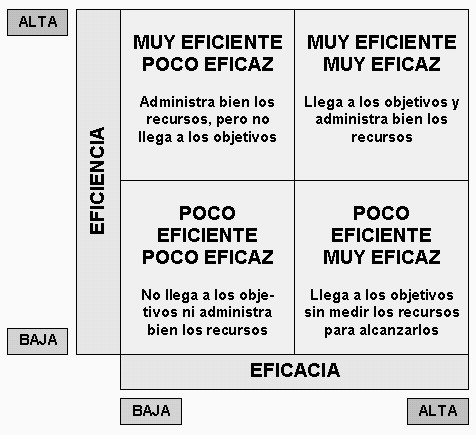Job interview with no experience
How do you prepare for an interview if you’ve never worked?
Hello again everyone!
As I promised you in a previous entry How I found work experience in Germany, here I have another entry in which I’d like to share some tips and advice with you, in order for you to have a perfect job interview and therefore increase the chances of them hiring you.
As you can see from the title, this time I’m going to talk about preparing for an interview for a job or work experience if you’ve never worked, as if you haven’t got any experience at all and it’s the first time you’re entering into the job market; like me (more or less).
To be honest, I was “working” for a month in summer in a treasury management company updating the business’ database to send an invitation to the customers asking them to attend an event that was to be celebrated in October.
It happened that for this little job role I didn’t have to have any interviews or anything. The director of the company was my assistant French teacher in college and he got on quite well with my parents; and as he needed a bit of help to spread the word about the event that he was organizing he asked if I would be available to help him. Well, I accepted, although with little desire because to be honest I really didn’t fancy working over summer, but at the same time I thought that it would be a good opportunity to gain experience and therefore add it to my CV.
The problem is, to be honest with you, that this “little job” didn’t give me much experience.
For almost 6 hours a day I dedicated myself to searching the internet for the e-mail of the financial director of the businesses and then I had to call the same business to confirm if the address was correct or not. The worst was that most people told me that this information was confidential and that they couldn’t help me. Basically, a bit disappointing.
Now let’s get to the heart of the issue. Having “connections” and being able to work for this business was supposed to put me one step ahead of everybody and most importantly to obtain a job role: get an interview.
The (damned) interviews that are so spoken about, although it doesn’t seem so, are the most important for giving a good first impression. Some people thing that they’re merely a screening and that afterwards, once you’re part of the company, is when you should give it your best. This is true, but it’s a half-truth. You must always give it your best. Even in the waiting room whilst you’re waiting to be called into the interview.
Most people advise you to “sell yourself”. That you make it known that you’re worth a lot and that you’re of good quality; but, in my opinion, I think this is a bit narcissistic and not very useful, since people, much to our regret, aren't perfect, and you shouldn’t give an impression of perfection because then when you mess up one day you’ll be a bit screwed as well as very embarrassed.
My recommendation: you have to be yourself. By this I mean, of course, we should mention all of the qualities, strengths and skills that we have, but we should also subtly drop in that we aren’t perfect and that we can make mistakes, but in the case of this occurring, we’ll do anything possible to correct it and to ensure that it doesn’t happen again. In this way, we demonstrate to companies that we’re capable of overcoming any obstacle and that if we make a mistakes, we’ll know how to learn from it and get over it.
You will have surely sent your CV to the company when you did the job application, but it’s always advisable to take a paper copy with you in case they ask for it.
If you’re going to apply for a foreign company, I recommend taking the CV in Spanish but also in English. In this link you can find an example CV in any European language. https://europass.cedefop.europa.eu/es/documents/curriculum-vitae/templates-instructions
It explains very well how you should fill in each space and in what order. Take a look.


Typical interview questions:
Tell me about yourself
This is a question where lots of people mess up and don’t really know how to respond; and it doesn’t surprise me, because when they ask you to talk about yourself, they aren’t asking for all of the details of your life, what you like to do when you’re bored or how many cats you have.
What they want to know with this question is your skills and virtues, your strengths and weaknesses, and what makes you different to (and better than) the others.
Firstly, you could start with talking about what you study or have studied, in which university, for how long and where. Then going forward, don’t go on about why you chose this degree. Now what you have to do is talk about a skill that relates to your studies.
For example, you could say that you’re very organised and creative because people have always considered you as a hardworking person and a natural leader since in all of your group tasks they always depended on you to organize people and to select roles.
In saying that, you’re dropping in that you’re a very responsable person and that you’re capable of taking on responsibilities.
Moving on, you could add that by working in groups you’ve learned to listen and to consider the opinion of others and to be more empathetic to understand other people’s points of view.
Sounds good, right?
With this type of response you’re talking about yourself, but not only that, at the same time you’re defining how you work.
Why should we hire you?
Well because I’m super organised, pay lots of attention to detail and I always to my work well.
No.
Don’t even think about saying this. It’s good to compliment yourself now and again and highlight your strengths, but remember that if you have virtues, you also have faults (although they may be very few) so don’t be too vain.

For this question, it would be good to say something about the business, what you like about them and what you think you could bring by working with them. By the way, add what this role could bring to both your working and personal life.
This was you can demonstrate that the company forms part of you even before they have hired you.
Why do you want this role?
Ok, here you need to be careful. Here is where you demonstrate that you’ve read the job offer. Normally, when advertising the job companies list the tasks that you will be doing, the responsibilities that you’ll take on and the skills that you must possess in order to obtain this role.
So, if you see in the announcement that there’s a wide range of tasks and responsibilities, you could say that you’re interested in the role because of the different types of tasks and responsibilities that it offers and that you’re sure you could fulfil them.
It’s also really important to keep mentioning the word efficient. It’s the way to solve a problem or do a task quickly but with good results; which is why if you say that you can achieve such tasks and responsibilities in the most efficient way possible, the company will value it.
One thing I must tell you: don’t confuse the term efficiency with effectiveness. Both terms are good, but depending on the type of job that you’re doing one could be better than the other.
Effectiveness is doing any task quickly, it doesn’t matter if it’s based on reduced costs or using all sorts of resources, the important thing is finishing as soon as possible. But as I said before with efficiency, that’s trying to finish quickly but using minimal resources and achieving a good result.
I think this graphic helps to understand both terms a lot better.

(fotografía: http://comunicaccionypersonas.blogspot.com.es/2011/08/eficaz-o-eficiente.html).
To sum up, always try to be effectively efficient.
How do you usually work under pressure?
Are you someone who loses their nerve quickly? If this is the case, say it. Don’t give a false impression of yourself; all that happens is that they hire you and you find yourself in a situation where you’re overloaded with work and too much stress and you don’t know what to do.
Neither should you say that you can’t work under pressure because you’re badly organised and therefore you need everything to be very relaxed in order to be able to work efficiently. There’s no need to let the company know that you’re so soft, man. What you could say is that everyone finds it difficult to work under pressure; some take it better that others, but that for you, given that you’re a responsible and organised person, in cases where you’re put under a lot of stress, you manage, sooner or later, to find a solution; but that above all, you must remain calm.
Here you could also add that nobody is perfect, and that if you make a mistake, you’re certain that it won’t happen again because you’ve realised what the error was and you’ve learned from it.
You could also say that you do yoga or pilates and that this helps you to relax and to have a clear mind if you find yourself in a difficult situation (but only say this if it’s true, eh, remember that you must never lie).
What do you know about us?
Another key question. You need to show them that you’ve studied, that you’ve done intensive research about the company and that you know everything including the name of the doorman.
What are your passions?
This question is a bit of a trap, like the first “tell me about yourself”.
Of course, you have to say what your passions really are, but try to highlight the skills that you gain from these activities that you love to do.
For example, if you like to do crochet, say that you like it because it requires patience and precision to make something big and beautiful, and that doing it quickly without thinking ends up leading to a mess.
If you like playing an instrument, say that this helps you to let loose your creativity and to destress.
If you like basketball or any other team sport, say that it’s because it helps you to improve your relationships with others and that you learn to work in a team.
Of course, one thing you must not do is to constantly refer to team work. Of course this is important, but it’s also important to demonstrate that you have your own initiative and that you can make decisions for yourself if necessary.
Have you got any questions?
Never ever say that you don’t have questions.
Here is when the interviewer sees if you’re really interested in the company and in the job role or if it’s just another interview for you.
Some things that you could ask are:
- More information about the role, a more detailed description, if there are more responsibilities than those mentioned in the advertisement.
- If the company offers any type of training to take on the role.
- Could you tell me about the type of people I’ll be working with? Asking this question shows them that you want to get to know who you’ll be working with, to not end up being surprised, it could be said. Ask them if they’re young, with previous experience or like you who has just finished your degree; if they’re of different nationalities, if you’ll be in contact with employees in other departments.
- Lastly, ask them about the working hours. How many hours you’ll work, which days, if you’ll have holidays, if there are bank holidays, etc.
- In the case of doing work experience or working abroad, ask them if they can help you to find accommodation or how you get to the office: if you need to get a bus, metro or both, ori f you can go by foot, etc.
Don’t forget that all of these questions and responses that I’ve shared with you only act as a guide. It’s true that normally they’ll ask you all of these questions or at least 70% of them, or maybe phrased in a different way, but the responses are always the same.
In the hypothetical case that they ask you a question that you don’t know how to respond to, ask them to give you a bit of time to think about what you’re going to say. It’s better than saying something stupid, believe me.
That’s all for now. If anything else comes to me I’ll add it; )
Thank you for reading!
Photo gallery
Content available in other languages
Want to have your own Erasmus blog?
If you are experiencing living abroad, you're an avid traveller or want to promote the city where you live... create your own blog and share your adventures!
I want to create my Erasmus blog! →







Comments (0 comments)